A matter of trust for WA’s Indigenous corporations
WA’s Indigenous corporations and trusts are dogged by dysfunction.
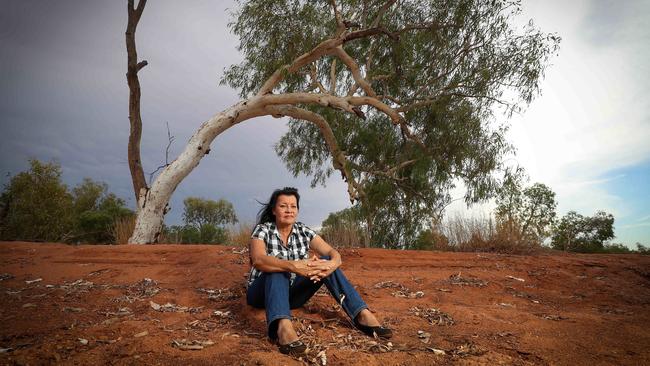
The largest escalation of mining activity in Australian history rained money on the Pilbara region 1500km north of Perth. A thousand people a week moved to Western Australia to take up well-paid jobs. Resources companies spent generously to poach the public service of some of its best and even the just OK. Fast-food workers in the Pilbara’s biggest town, Karratha, earned $104,000 a year with free housing.
At the same time, tens of millions of dollars in mining royalties flowed into trusts for the benefit of the region’s 11,700 traditional owners, 19 per cent of the Pilbara’s permanent population. But the most comprehensive assessment of the wellbeing of Indigenous people in the Pilbara ever conducted has found they are worse off than before on several fronts.
In a project overseen by representatives of eight traditional owner groups and paid for by Rio Tinto, Australian National University emeritus professor John Taylor compared living standards of Indigenous people in the world’s richest iron ore region between 2001 and 2016 and found the percentage of Aboriginal people with incomes less than half the national median wage of $662 a week had increased from 47 per cent to 58 per cent.
In other words, nearly six out of 10 Aborigines were living in poverty. After 15 years of native title deals with big miners that established a patchwork of charitable trusts to benefit Indigenous people, including through education, training and economic development, the Aboriginal employment rate had not lifted.
While Indigenous people in employment earned more than before, only 46 per cent of Aboriginal adults in the Pilbara had a job in 2016, the same as in 2001. Low school attendance rates remained unchanged. It is considered essential for a child to attend school an average four or more days a week to succeed, but in the Pilbara only 30 per cent of Aboriginal children achieved this in primary school and in high school the figure was 20 per cent.
Home ownership, a key indicator of stability and wellbeing, fell. Only 219 houses were privately owned by Aboriginal people in the Pilbara in 2016.
The results saddened but did not surprise Fred Chaney, a Fraser government minister who has worked with Aborigines in the Pilbara for 25 years in his role with an education foundation that supports Indigenous children to complete Year 12. The Polly Farmer Foundation is a simple program of after-school tuition. One of its strengths is that it quietly earns the respect of parents, who then encourage their children to attend.
But the foundation reaches only a fraction of Aboriginal children in Pilbara towns.
Last week Chaney was in Newman, home of the world’s biggest open pit mine, and he says he was depressed to see the conditions in which some Martu children are living. The “perils of grog” are all around, he says. “I have an immense admiration for the people who work for our foundation in getting kids to school … they are working under great difficulties,” Chaney says.
When Taylor’s landmark report was published last year, Chaney wrote a forward saying nothing was more vital to meeting the challenges in education, employment and health than the involvement of the Aboriginal people of the Pilbara themselves. It was meant as a rebuke to anyone who thought responsibility lay only with government and mining companies.
“There are no easy solutions,” Chaney tells The Australian. “What we know is that after a long period of agreement-making that put money into trusts, there is no general improvement. This rising tide of wealth has not raised all the boats.” Chaney knows some trusts and Indigenous corporations in the Pilbara are dogged by dysfunction, blighted by conflict and complaints that they are controlled by dominant families to the detriment of others.
“Unless these things are underpinned by a desire for self-improvement through education and employment and opportunity, it becomes a competition to get hold of as much of the available funds as possible,” Chaney says. “You are not going to solve it with more money.”
Njamal woman Sharon Westerman says the transactions that result in the loss of Aboriginal land must lead to something better. She wants to see mining royalties protected from opportunists — Aboriginal and non-Aboriginal — and put into programs that help traditional owners improve their lives.
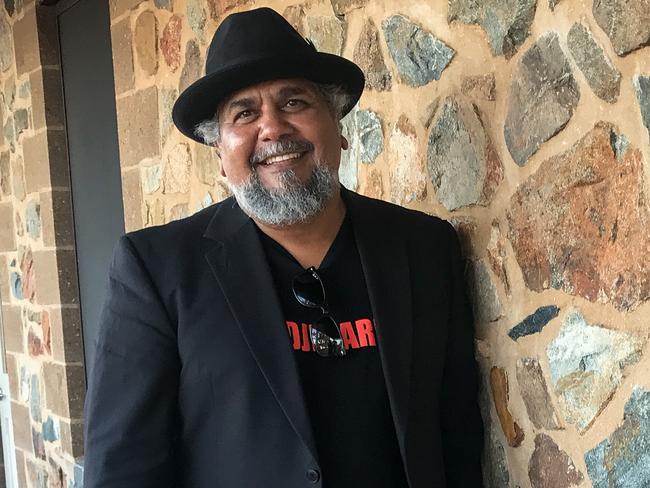
Westerman — reared in the Pilbara by a Njamal mother and a non-Indigenous father — wrote in November 2016 to Michael Mischin, the West Australian attorney-general at the time, asking for an inquiry into the trust that holds money for her people. She and others believed the trust was beset by conflicts of interest and dominated by strong personalities looking after themselves.
“This issue is indicative of a widespread problem across many other Aboriginal groups in Western Australia,” she wrote to Mischin. Westerman was unpopular with some in her community for what they saw as persistent and unwelcome interference.
But she did not stop, even after she was vilified on Facebook and abused in person. Next she went to court to push for a forensic audit of the Njamal People’s Trust. She lost, and in the fallout the trust pursued her for costs; the charitable trust established to benefit her as a Njamal woman tried to have her declared bankrupt in a Federal Court action dropped only last week.
Amid acrimony and backbiting, Westerman was charged with stealing from her employer Njamal Mining, a subsidiary of the trust, and later acquitted. She also was accused of assaulting a woman at a meeting of Njamal people. That charge was dismissed.
It was an especially difficult period for Westerman, a schoolteacher who had always prided herself on being a high achiever from a good family. As the community fight over the trust turned toxic, Westerman’s 32-year-old son, a fitter for Rio Tinto, was killed at work by a heavy piece of machinery.
Westerman took out a restraining order on a Njamal man she says threatened to kill her over pursuit of an inquiry. She says she was horrified to learn the trust paid for a lawyer to negotiate new terms for the restraining order on his behalf. When the government report that Westerman instigated was published, the findings were so concerning to incumbent WA Attorney-General John Quigley that he pledged to change the laws on charitable trusts to make it easier to remove rogue directors and to dismiss trustees who were mismanaging funds.
The report depicted a trust where tensions and battles for control loomed large. Its accounts had been bled by escalating fees. Perth businessman Rod Carter’s former role in the Njamal People’s Trust has its own chapter, large chunks of it redacted. He was director of the firm that served as trustee while his family companies and business associates benefited from services provided, according to the inquiry tabled in parliament.
Since Westerman instigated the inquiry, there has been important change inside the trust. It has built its assets from $2.8m to $5.8m, cut costs from $3.7m to $2.8m annually, and introduced a system of hardship grants for specific items that Njamal people need, including food. The old practice of distributing lump sums from the trust are finished.
Westerman feels there is more to do. She is still being pursued by the State Solicitor’s Office for about $12,000 in court costs from her attempt to force a forensic audit of the trust almost five years ago. She won’t pay it on principle because, she says, she was culturally obliged to act on the wishes of her community.
At a low ebb recently, Westerman told her friends on Facebook: “I’ve been fighting corruption and greed in a world that many other people don’t get to see. This greed contributes to the problems, the suicides and the poverty we see in Aboriginal communities. I have seen this first hand. I have seen Aboriginal people — old people and young people get sick. They live in filthy, dangerous homes while others get rich off the land they have given up.
“I’ve seen people tearing communities apart instead of bringing them together to solve the problems. I’ve seen the money used for drugs and wasted, instead of used for good things that work.
“I’ve stood up for others against this, when they could not stand up for themselves. I could not stand by and just watch it … or ignore it. As a result, I have been attacked, and my reputation destroyed.”
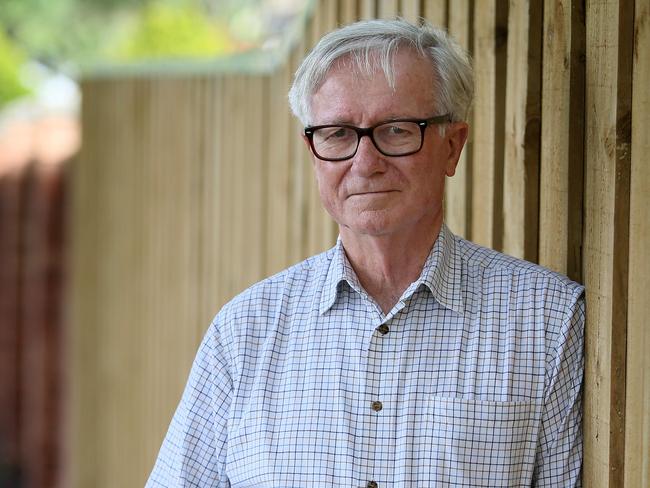
Some Indigenous groups in the Pilbara have used their deals with miners for successful enterprises.
In the town of Roebourne, the Yindjibarndi Aboriginal Corporation is led by a Yindjibarndi chief executive, Michael Woodley, a graduate of one of Rio Tinto’s trainee programs. Woodley answers to a board of 12 Aboriginal directors. They follow three principles: community, culture and commerce.
The Yindjibarndi own 66 per cent of a business, Yurra, that has $70m in contracts including providing ground crews to mining companies. Of the 103 workers at Yurra, 50 are Indigenous. The Yindjibarndi used money from a separate trust to buy and restore the region’s first pub, Roebourne’s once notorious Victoria Hotel, and turned it into offices and a cultural centre that generate rent.
The building held painful memories for the Yindjibarndi and the community did not want to renew the hotel’s liquor licence.
Outside the hotel on September 28, 1983, a brawl broke out between off-duty police and Aboriginal people including 16-year-old John Pat. The teenager was taken to the lockup and died from head injuries. This led to the Royal Commission into Aboriginal Deaths in Custody. Today Roebourne has no licensed premises.
Woodley says there is “enormous pressure” to use mining royalties to relieve the day-to-day poverty of Yindjibarndi people with lump-sum payments. These are difficult choices for the community, he says. “We are thinking about the future.”
A 334km drive south from Roebourne in the Pilbara town of Onslow, the Thalanyji people have a deal with Chevron and their Aboriginal corporation is in recovery.
After The Australian reported on tumult at the Buurabalayji Thalanyji Aboriginal Corporation, the Office of the Registrar of Aboriginal Corporations moved in. In January, special administrator Peter Saunders wrote a newsletter to the Thalanyji people setting out “the money story” in plain words: the corporation owed far more than it could pay back and had spent far more than what he thought reasonable in many areas during the previous 2½ years, including $2.2m on travel, accommodation and meals.
Saunders reported chief executive Matthew Slack — described in state parliament as a fraud and a compulsive liar — had been paid a salary of $618,748 last year, not including travel and entertainment expenses.
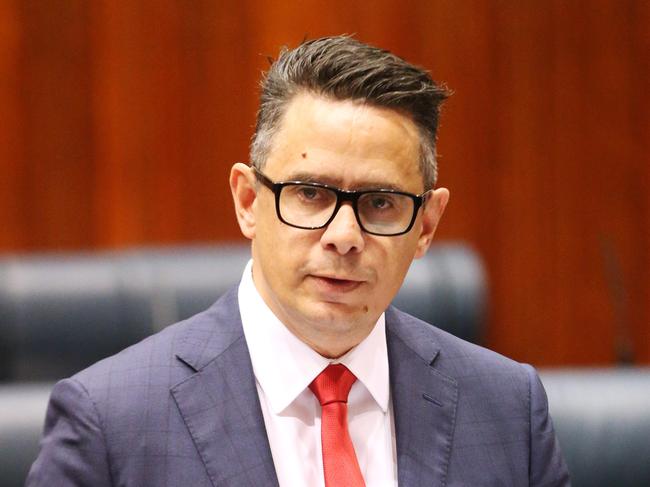
Slack told The Australian he earned much less than $600,000, and claims Saunders botched his financial reporting by confusing the accounts of the Aboriginal corporation’s various enterprises.
Nationals MP Vince Catania used parliamentary privilege to rip into Slack in February. He read a statement into Hansard signed by some of the corporation’s Aboriginal members alleging Slack claimed to be Indigenous when he successfully applied for the job of chief executive “but there were serious doubts about this”. Catania claimed the corporation’s credit card expenses included the presidential suite at the Shangri-La Hotel in Sydney, which he said Slack frequently booked.
“There were a number of personal expenses claimed including iPads, lingerie, boxes at the football, restaurants, valet parking, and charges that I have been told also include strip clubs, based on the description on the (credit card) statement,” Catania told parliament.
Slack, who resigned from the corporation last year, disputes this, including the claim that he said he was Indigenous when applying for the job. He told The Australian that Catania was misinformed by disgruntled Thalanyji people who owed millions to the corporation that they did not want to repay.
“I spent countless time (away) from my family to help these people get ahead and all I got out of it was lies and more lies about me,” he says.
West Australian Aboriginal Affairs Minister Ben Wyatt believes the overall system of Aboriginal trusts and wealth management requires significant overhaul that will require effort from the commonwealth regulator and his own state government: Western Australia’s 58-year-old charitable trust laws were never designed for native title payments. But Wyatt says there also must be an increased effort from Aboriginal corporations “to get the system working for the benefit of Aboriginal people”.


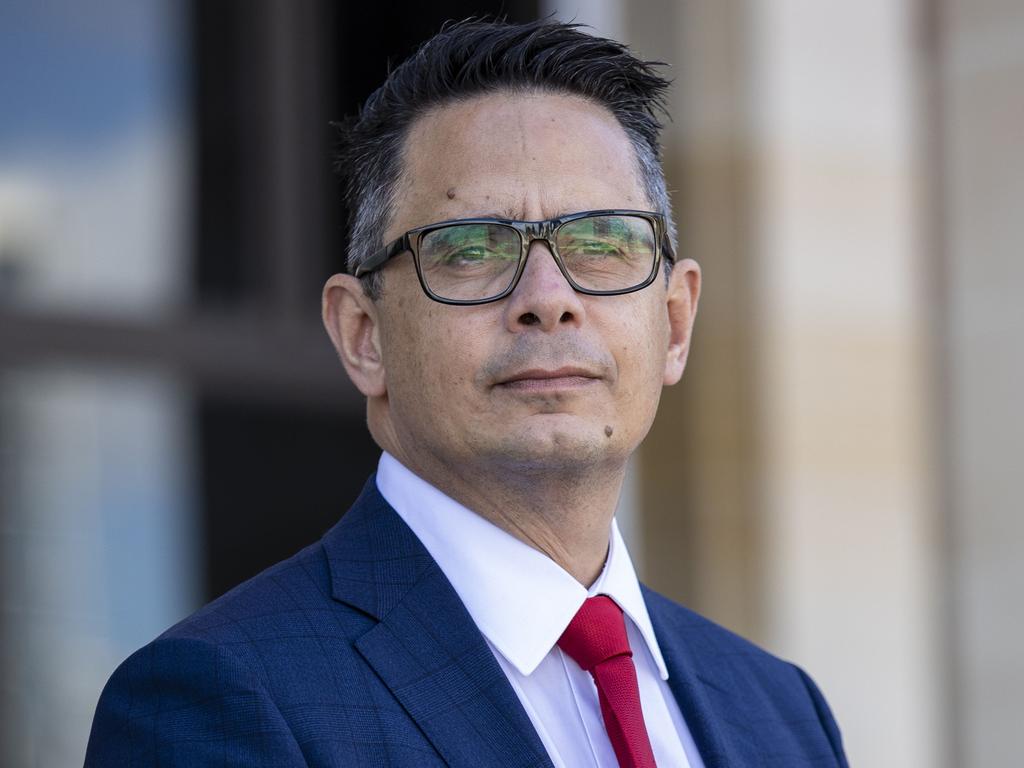
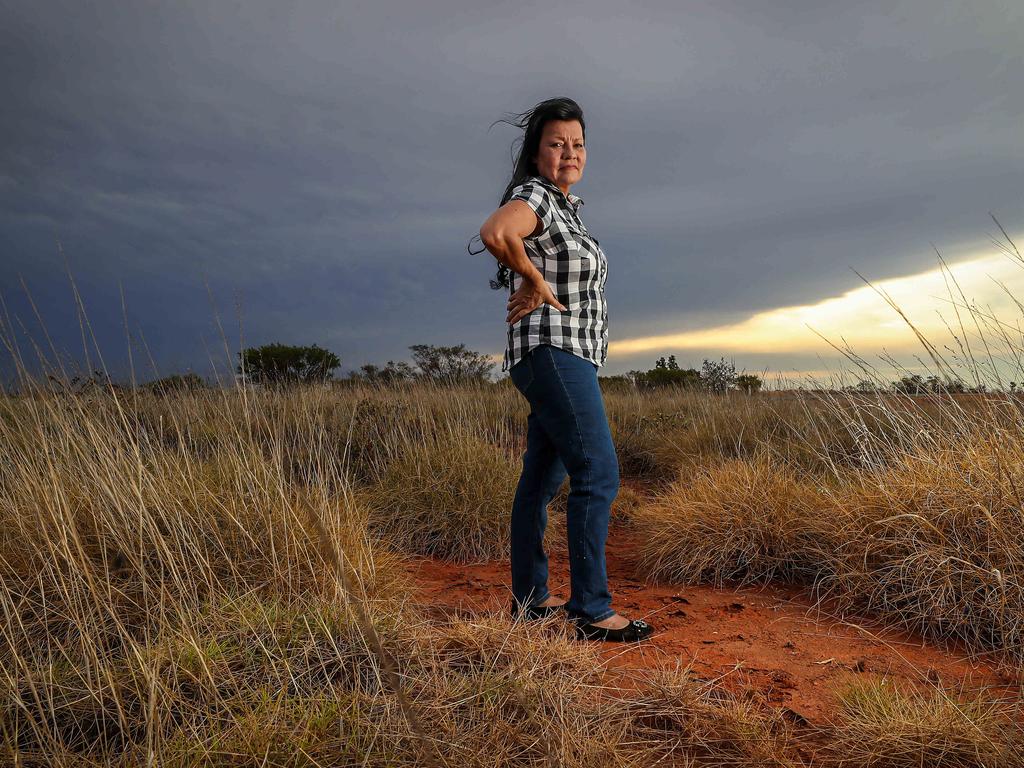
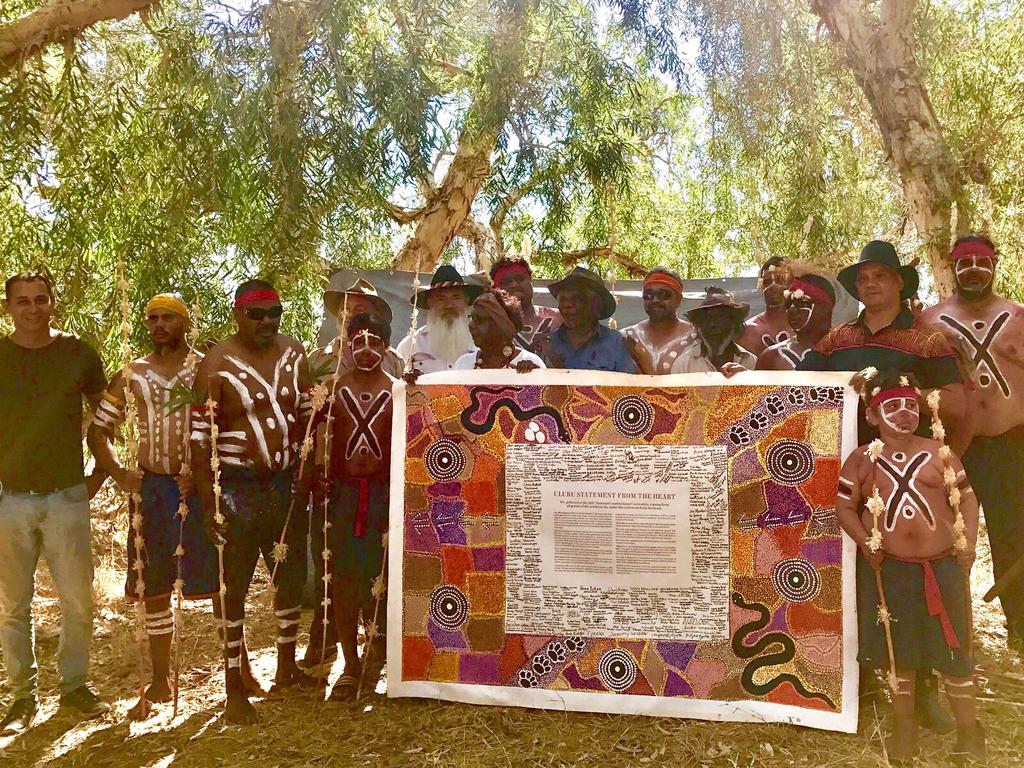
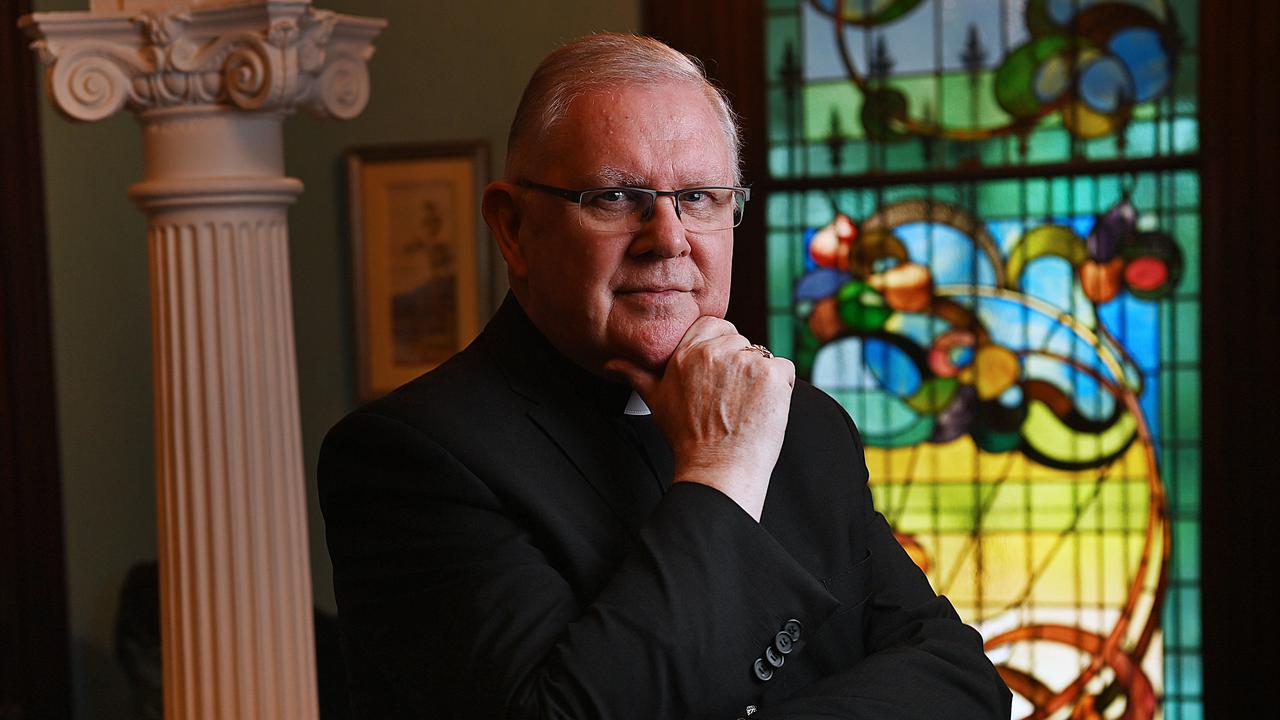
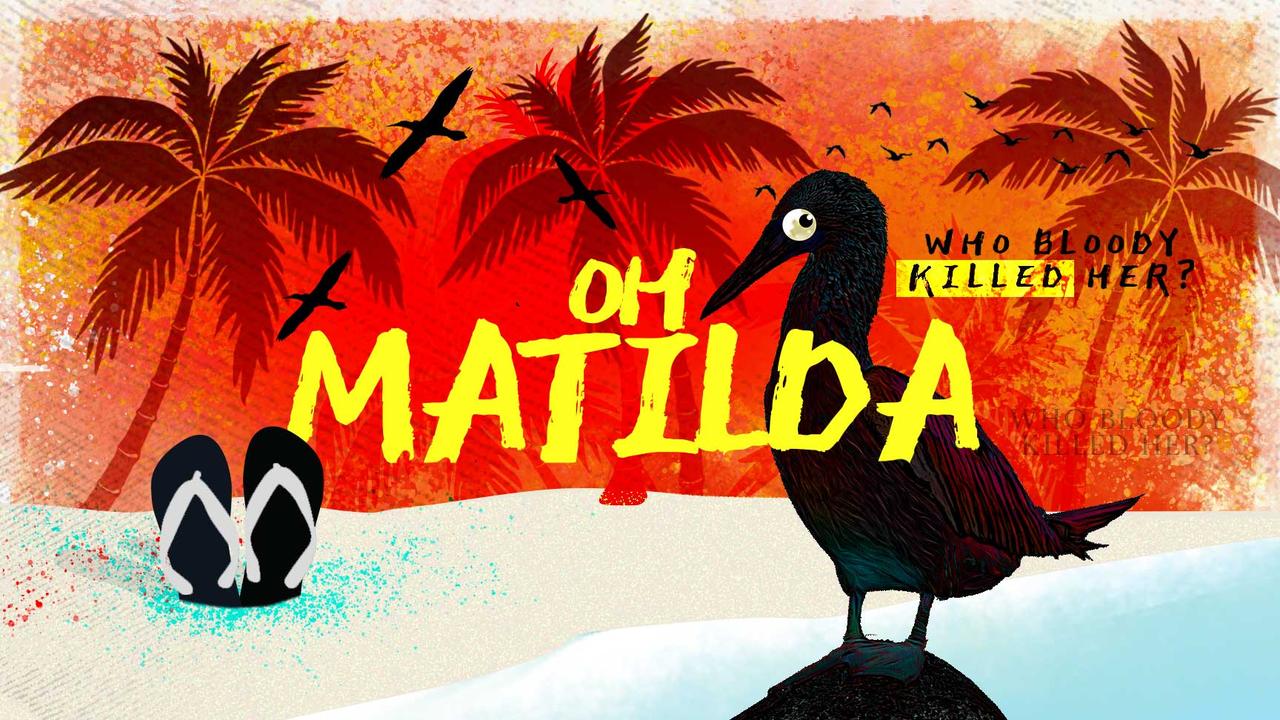
To join the conversation, please log in. Don't have an account? Register
Join the conversation, you are commenting as Logout